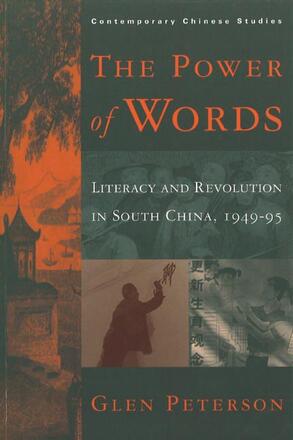
The Power of Words
Literacy and Revolution in South China, 1949-95
Description
This book is a social and political history of the struggle for
literacy in rural China from 1949 until 1994. It aims to show how
China's revolutionary leaders conceived and promoted literacy in
the countryside and how villagers made use of the literacy education
and schools they were offered. Rather than focusing narrowly on
educational issues alone, Peterson examines the larger significance of
P.R.C. literacy efforts by situating the literacy movement within the
broad context of major themes and issues in the social and political
history of post-1949 China. Following the recent trend toward regional
and local history, this book focuses on the linguistically diverse,
socially complex, and politically awkward southeastern coastal province
of Guangdong. As well, Peterson conducted interviews with local
officials and teachers in several Guangdong counties in 1988 and 1989.
Reviews
... fine work ... this is a carefully researched and lucidly written discussion of an important topic in PRC history, It deserves to be read not only by students of education, but by anyone interested in the post-1949 social and mental transformation of the Chinese countryside.
- The China Journal, Issue 41
... until now, [China's post-1949 literacy programs] have escaped the wide-ranging analysis which Peterson provides... Peterson offers a nuanced analysis of elite and vocational literacy in a social and political context... This book offers a readable, succinct, and broadly informed perspective ... . an important contribution to anyone interested in Chinese or Third World development.
- Pacific Affairs, volume 72:2, Summer 1999
It is to the author's credit that he is able to weave his discussion of different issues ... into a coherent narrative that reinforces the importance of adding historical context to contemporary policy discussions. Furthermore, the primary source documentation that he has gathered from within Guangdong province is both significant and impressive. For all of these reasons, this volume is an important contribution to the field of Chinese education and should be of interest to historians, social scientists and comparative educators who work in this area.
- Irving Epstein